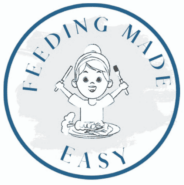Vitamin K is one of the fat soluble vitamins our body needs. It’s mainly known for its role in blood clotting, which is how it got its name (the K comes from its German name: Koagulationsvitamin) (1). The bacteria in our gut are actually capable of making vitamin K for us, but usually not in sufficient amounts for our needs.
This post may contain affiliate links and when you click on the links I may earn a small commission at no charge to you. As an Amazon affiliate, I earn a commission from qualifying purchases.
What does vitamin K do?
Vitamin K is used to help with blood clotting as well as bone metabolism. People who take a blood thinner called Warfarin/Coumadin need to be aware of their vitamin K intake, because it works by antagonizing the activity of vitamin K.
Where can you get vitamin K?
Leafy green vegetables, vegetable oils, and some fruits are the main sources of vitamin K. Some fermented foods do contain vitamin K, but the amount is dependent on the bacteria used.
Recommended Intakes
The recommended intakes are based on the adequate intake (AI). The AI is assumed to ensure nutritional adequacy and is established when there is not enough evidence to develop the recommended dietary allowance (the amount to meet 97-98% of the population) (2). For infants 0-12 months, the recommended amounts are based on the amounts in breastmilk (2). It is assumed that infants will receive prophylactic vitamin K at birth as recommended.
| Age | Recommended Amount |
|---|---|
| 0-6 months | 2 mcg |
| 7-12 months | 2.5 mcg |
| 1-3 years | 30 mcg |
| 4-8 years | 55 mcg |
| 9-13 years | 60 mcg |
What happens if you don’t get enough?
Bleeding and hemorrhage are the classic signs of deficiency, although they only happen in severe cases (2). A deficiency could also reduce bone mineralization and lead to osteoporosis. Doctors recommend that newborns receive vitamin K at birth due to an increased risk of deficiency. Infants who do not receive this are at increased risk of vitamin K deficiency bleeding which was formerly known as classic hemorrhagic disease of the newborn.
Can you get too much?
Vitamin K has not been shown to be harmful, but it can interact with medications (3). As always, it is best to speak with your doctor prior to starting any supplement.
Vitamin K Rich Foods for Kids
- beef
- blueberries
- broccoli
- canola oil
- carrots
- cashews
- chicken
- collards
- edamame
- figs
- grapes
- kale
- lettuce
- okra
- olive oil
- pine nuts
- pomegranate juice
- pumpkin
- soybean oil
- spinach
- turnip greens
- vegetable juice cocktail

Krystyn Parks is a Registered Dietitian and Lactation Consultant who specializes in feeding children. She has a Master’s Degree in Nutritional Science from California State University Long Beach. She is an International Board Certified Lactation Consultant and has been registered with the Commission on Dietetic Registration since 2013.
